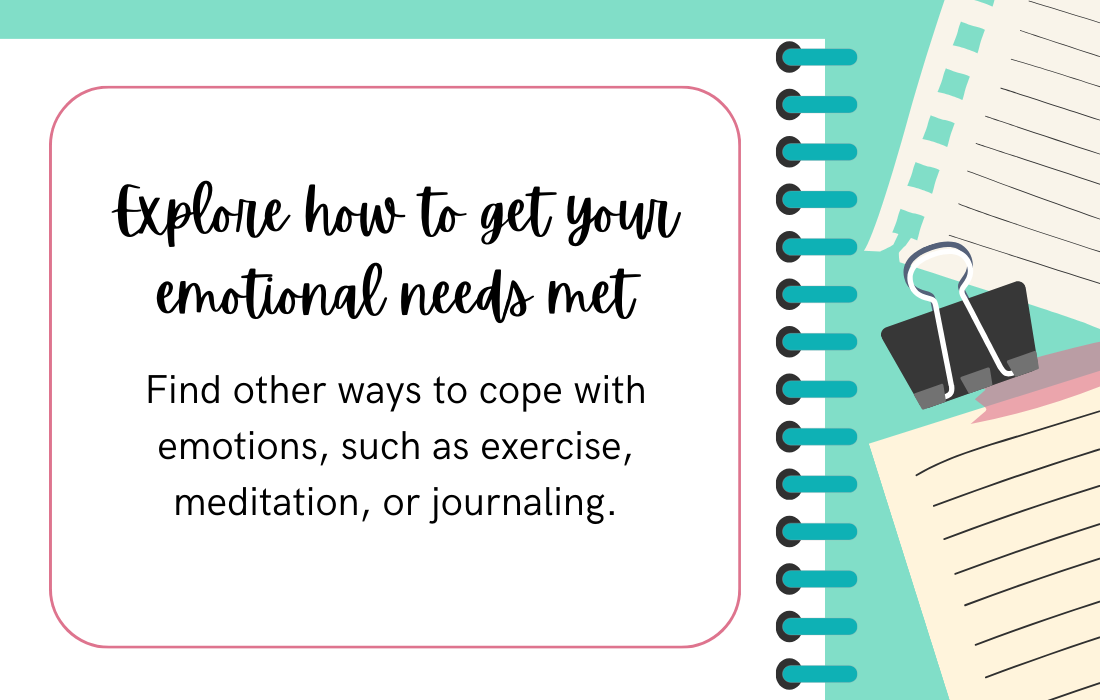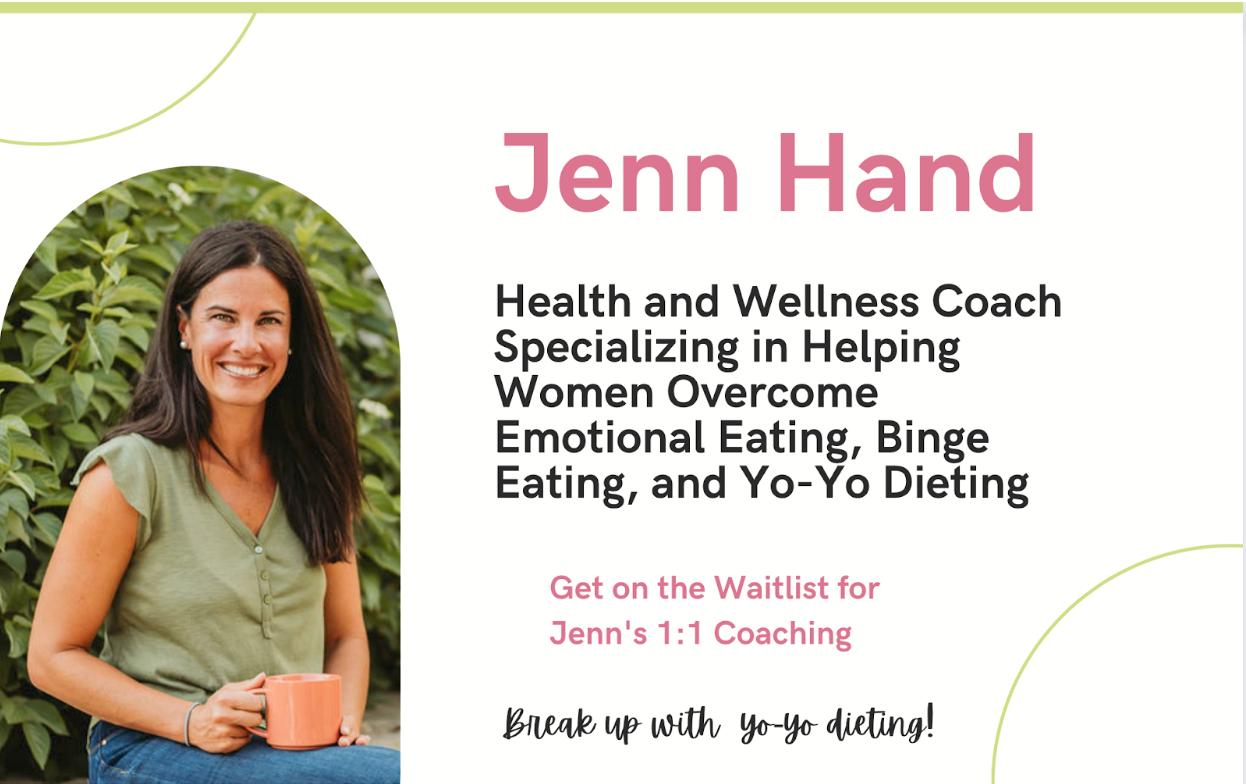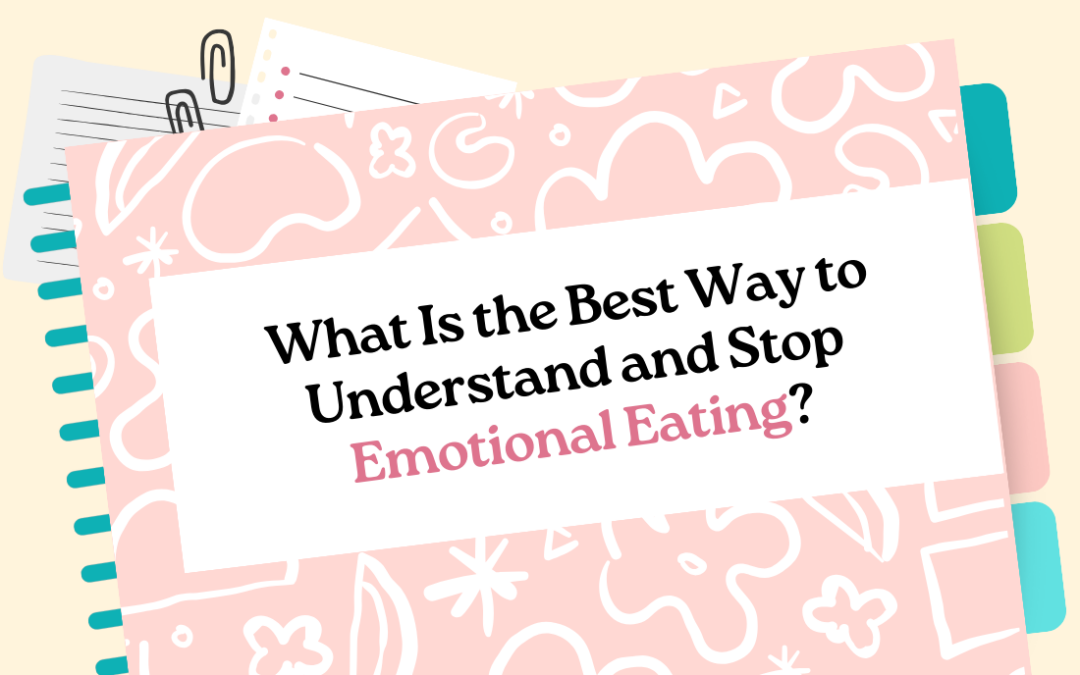Written by Jenn Hand, Holistic Nutritionist, Board Certified Health Coach, NBC-HWC, Emotional Eating Coach
5 Strategies to Help You Stop Emotional Eating
1. Slow down and be mindful
Practice being present and aware during meals, focusing on the taste, texture, and aroma of the food.
This helps differentiate between emotional and physical hunger. It also helps you pay more attention to what’s going inside of you–which is where emotions are happening! Slowing down enables you to better understand what you’re feeling and why.
2. Know your triggers
Recognize situations, emotions, or stressors that send you into the food.
By understanding these triggers, you can develop alternative coping mechanisms. Going home for the holidays used to be a big trigger for me, so I’d make a little plan on an index card that included daily walks, journaling, and a bit more of a structured plan around food to help me stay balanced.
3. Explore how to get your emotional needs met
Find other ways to cope with emotions, such as exercise, meditation, or journaling.
Do some soul searching to see what it is you need when you’re lonely, overwhelmed or stressed. This can help you focus on what you need to do to get through those feelings so you don’t need to use food as a way to cope.
4. Get comfortable with discomfort
Feeling emotions is uncomfortable.
We didn’t learn how to process feelings and food became our way to cope. As we’re learning to put down the food, we will experience discomfort. This isn’t a bad thing–it means you’re learning how to be a human being who experiences the spectrum of emotions!
5. Seek support
Don’t hesitate to seek professional help or join a support group.
Talking about your challenges with emotional eating can provide new perspectives and strategies for managing it.

Common Questions
What is emotional eating, and how is it different from regular hunger?
Emotional eating is a craving for food driven by emotional needs or feelings, rather than actual physical hunger. It differs from regular hunger, which is the body’s signal that it needs energy, often accompanied by stomach growling or low energy.
How can I figure out when I’m using food to cope with emotions?
If you realize you’re actually not physically hungry, that can be a pointer to exploring whether or not you’re eating emotionally.
Ask yourself if you’re avoiding a feeling, if you’re feeling something that you don’t want to look at or if there is someone or something that is triggering you to better understand if you’re using food to cope.
Do certain feelings like stress trigger emotional eating more often?
There are certain feelings that are harder for people to deal with that can lead to eating.
These typically include grief, loneliness, overwhelm, stress and internal angst. Each person may be different and turn to food for a variety of emotions, depending on how they learned to cope with feelings.
What can I do to handle stress without turning to food?
It can be helpful to explore other outlets for dealing with stress, like physical activity, journaling, meditation, coaching or therapy, or anything else that feels relaxing to help you manage stress.
Are there specific foods I’m more likely to crave during emotional eating?
Typically, we desire foods that are comforting and sugary to “soothe” the challenging feelings.
Read More:
🌷How to Not “Give In” to Emotional Eating
Work with an Emotional Eating & Holistic Nutrition Coach
Overcome Bingeing and Emotional Eating, and Break Up with Yo-yo Dieting
Working with an emotional eating coach and holistic nutritionist can help you get free from the frustrating binge and restrict cycle and stop yo-yo dieting.
You don’t have to be obsessed with food or have a million rules around eating to find your natural weight and learn to love your body. Ready to actually see a lasting change and experience true freedom?
Schedule a 20-min CallAbout the Author:

Jenn Hand has been helping women like you become normal eaters since 2015.
She’s worked with thousands of women, helping them to balance their bodies, end bingeing, stop obsessing over food, and start feeling amazing again. As a board-certified health coach and holistic nutritionist, Jenn knows how to support you in making real positive changes that last.
Her articles have been published on Mind Body Green, Tiny Buddha, Thrive Global and other local and global media platforms. She’s the author of How to Be a Normal Eater and the creator of The Normal Eater’s Club program. Listen to Jenn’s advice and tips on the Cake Doesn’t Count Podcast, or read more of her articles for free on the Food Freedom Blog.
Learn About Coaching!




